Interview: Grover Dale Reflects on a Life in the Theater
His memoir, A Boy Like That, is now available where books are sold.
Written by Mark Griffin
Grover Dale’s life story reads like the ultimate show bio. After all, there are few performers who can count the original Broadway production of West Side Story among their credits. Or say that Sir Noel Coward hand picked them to appear in one of his musicals.
While these achievements are undeniably impressive, they were only a warm up for this dancer extraordinaire. In 1989, Dale would co-direct the Tony Award-winning revue Jerome Robbins’ Broadway. A decade later, he founded Answers4Dancers.com, an online resource dedicated to helping dancers and choreographers find work and stay inspired.
Through it all, the boy from McKeesport kept busy offstage as well, romancing stars of both sexes, including Anthony Perkins, Elaine Stritch, Larry Kert and wife Anita Morris (Nine).
Now the 89-year-old Dale tells all in his highly addictive memoir, A Boy Like That (Red Socks Press), which chronicles what he describes as his “hits, misses, messes and miracles.”
You were an important part of the original Broadway production of West Side Story (1957). During rehearsals, did you have any idea that this was going to be a landmark musical?
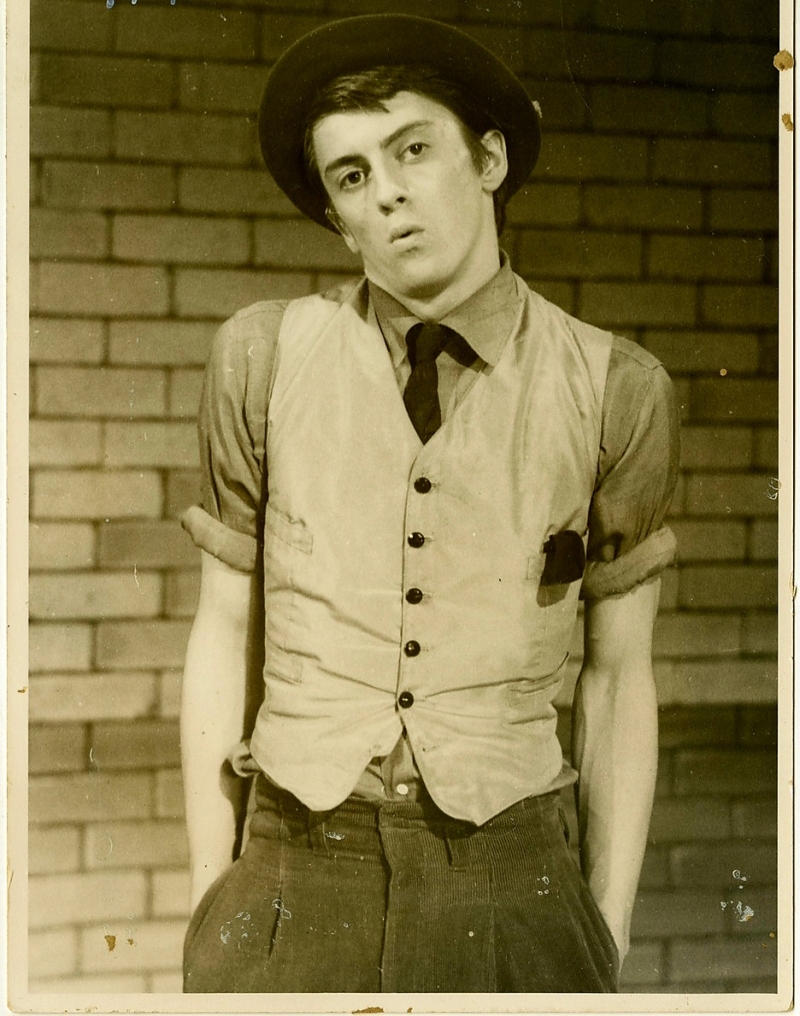
Broadway production of West Side Story (1957).
Photo credit: Fred Fehl
I don’t think any of us in the show had any idea of what we were lighting the plains for. Early on, there was a battle over whether the show should start with a song or a gang warfare ballet choreographed by Jerry Robbins.
Although he was going up against Leonard Bernstein, Stephen Sondheim and Arthur Laurents, Jerry fought for what he wanted. When he showed his collaborators this dancing prologue with the Jets and the Sharks, they got it. Then he led them to the door and said, “I’ll call you when I want you to come back.”
Jerome Robbins is revered as one of the great American choreographers, despite a reputation as a demanding taskmaster. What did you think of him?
I thought he was quite a brave man. He quickly established his power with everybody. I mean, at his young age to be bossing Leonard Bernstein and Sondheim around. And it’s their show! They created it.
At the time, I was living with Larry Kert [who originated the role of ‘Tony’]. Jerry was not nice to Larry but he was nice to me. It was challenging to show up and watch him tear Larry Kert apart while at the same time, I was sensing that Jerry Robbins really liked me. So, I had to very carefully navigate all of that.
Greenwillow (1960) is now considered a cult musical and it was both personally and professionally important to you. Your spotlight number stopped the show. And you became romantically involved with leading man Anthony Perkins. What was he like?
Tony was such a unique person. Very intelligent and funny. And he had to maneuver his way around so many things in life. When I first met him, he was a big star and a lot of people suspected that he was gay. Tony was very protective of his image. So, we had to take many precautions when we were out in public...I remember we were at an airport and I really wanted to kiss him goodbye but in those days, we couldn’t be open about our relationship. A handshake is all we could manage.
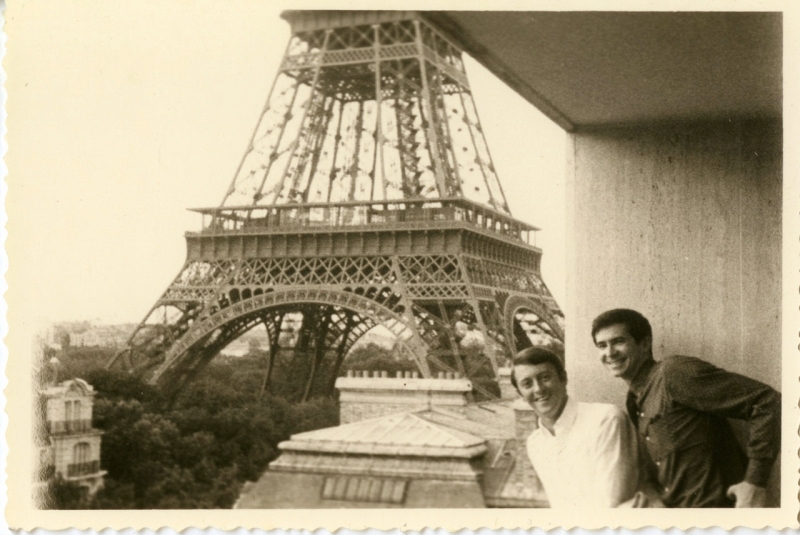
In A Boy Like That, you describe an incident that you refer to as a ‘backstage bombshell.’
I was touring. One night, the stage manager announced that Sir Noel Coward and Marlene Dietrich are on their way up to see Grover Dale. My four dressing-room mates started giving me a hard time.
‘Why would celebs like Coward and Dietrich ever want to meet you?’ None of us believed it. We thought it was a joke. So, I answered the door wearing little more than a dance belt. And there they were. Noel didn’t miss a beat. He looked me up and down and said, ‘I’ve always been known for my timing, young man. But tonight, it looks like I have outdone myself.’ I’m struggling to put on my pants and Coward says, ‘I want you to play the juvenile lead in my new Broadway musical Sail Away.’ I mean, am I dreaming?
Sail Away (1961) starred the incomparable Elaine Stritch. Start dishing, Grover.
Elaine was the kind of woman who came knocking at my door one New Year’s Eve wearing a full-length mink coat over her pajamas. And, of course, she brought two bottles of Dom Perignon. As I say in the book, there was nobody better at provoking laughter.
Anyone playing opposite Elaine learned not to try and compete. Just let the queen have the spotlight...when we were doing Sail Away in London, we lived togetherin a brownstone that happened to be across the street from a pub. So, she had the comfort of booze close by.
While Tony Perkins was away in Hollywood, Elaine and I partied and played. She was quite a character.
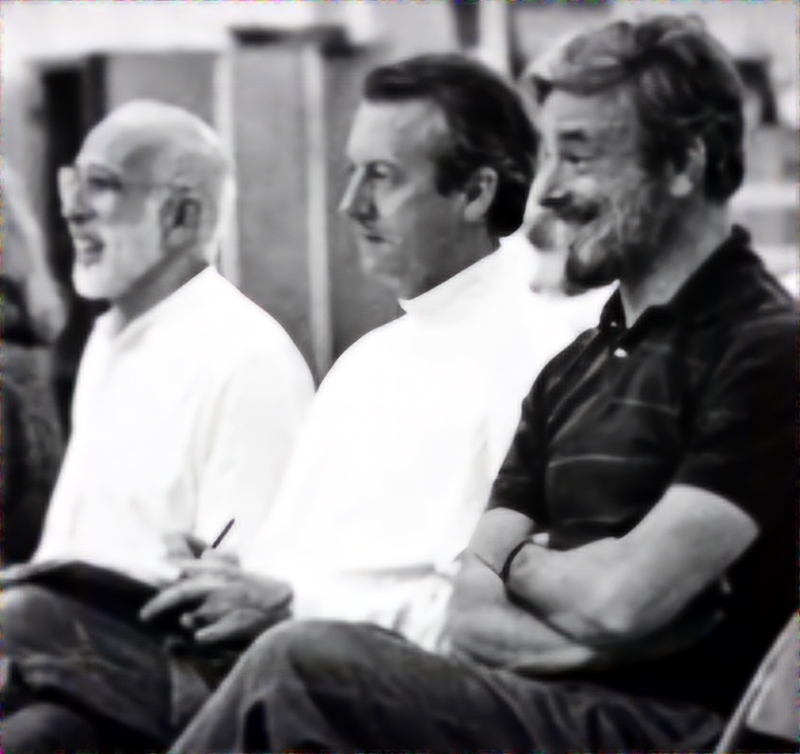
on the creation of Jerome Robbins' Broadway, 1989.
You made your film debut in The Unsinkable Molly Brown (1964). Debbie Reynolds had something to say about your wardrobe.
I walk on to the set. We’re going to shoot the big “He’s My Friend” number. Debbie comes over and says, ‘Who said you could wear red socks?’ Of course, she was the star and smart to question this. I told her the truth, ‘Bare feet inside shoes get sticky. I’ll dance better wearing socks.’ She’s staring at my feet and says, “And they just happen to be bright red?’ I offered to switch them but she said, ‘You’d better dance your ass off, Grover or those red socks will be jammed down somebody’s skinny throat.’ [Laughter] For five hours, I gave it everything I had. I just went for it. And the red socks stayed in.
You did some incredible dancing in The Young Girls of Rochefort (1967). On that film, you got to work with your idol, Gene Kelly. He later directed the screen version of Hello, Dolly! and offered you the role of ‘Ambrose.’ You turned him down. Why?
That offer meant a lot to me and I told him so. But my agent at the time said he couldn’t get me out of this contract that I had to do another movie, Half a Sixpence, for Paramount. Kelly said, ‘Then get yourself another agent, Grover.’ Out of a sense of loyalty, I just couldn’t do it. I wanted to play Ambrose but I just couldn’t bail on my agent.
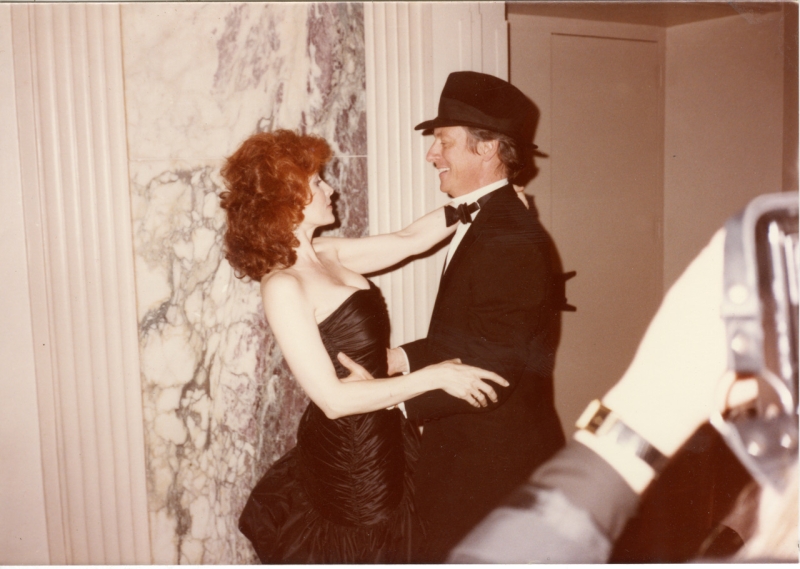
at the 38th annual Tony Awards in 1984.
You were nominated for a Tony for choreographing Billy (1969). You received a rave from the New York Times, yet the show closed on opening night. How did you deal with that kind of bipolar moment?
I had to blink twice when I read that Clive Barnes review. He wrote, ‘Grover Dale’s dances are brilliant.’
Wow! But after reading this, I was sitting in the back of the theatre, watching them dismantle the set. I had worked so hard on this show. Now the sets are being hauled away in garbage trucks. Tony Perkins showed up and said, ‘Let’s go home.’ On the way, we decided to have a drink at Joe Allen’s...I can still remember that walk up Seventh Avenue because it was special. It was the first time Tony and I openly held hands in public.
In A Boy Like That, you discuss working with everyone from Sondheim to Streisand. As I wasreading, I kept thinking, ‘Wow Kapow! Who has a life like this?’
Well, it’s been quite a ride. I guess I might be allowed to say, ‘Not bad for a boy from McKeesport.’
A Boy Like That is now available where books are sold.
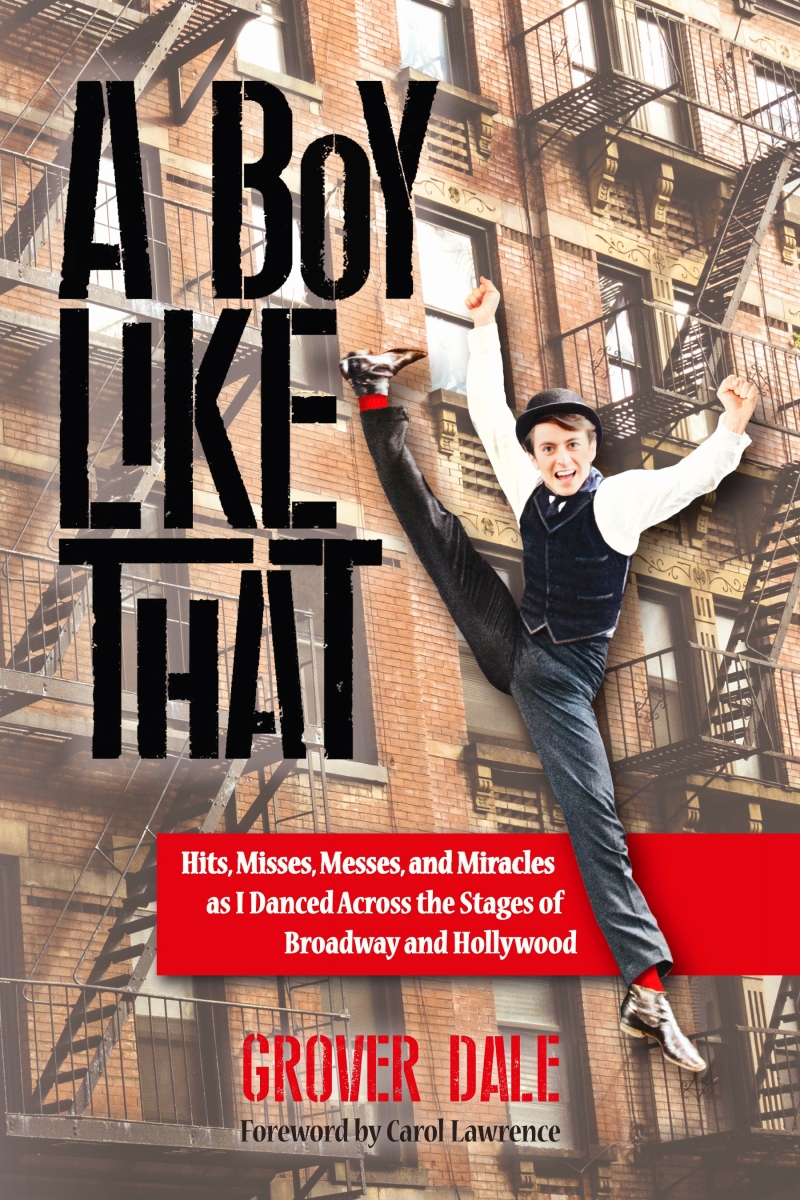

Videos

